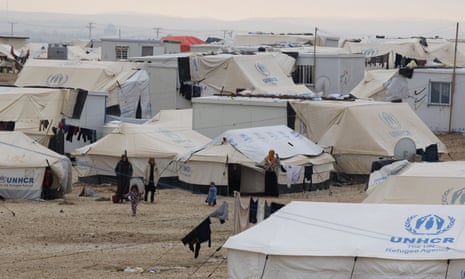The cash-strapped World Food Programme has had to drop one-third of Syrian refugees from its food voucher program in Middle Eastern host countries this year, including 229,000 in Jordan who stopped receiving food aid in September, a spokeswoman said.
The sharp cutbacks come at a time when growing numbers of Syrians who initially found refuge in neighbouring countries are trying to reach Europe. Since 2011 more than four million Syrians have fled their country’s civil war, most settling in Jordan, Lebanon, Turkey, Iraq and Egypt.
Abeer Etefa, a WFP regional spokeswoman, said the world must do more to support refugees in the regional host countries or face increasing migration.
“This is a crisis that has been brewing in the region for five years,” she said. “Now it is getting the attention of the world because it moved one step further from the region to Europe. We have to help people where they are or they will move.”
The UN agency has been distributing food vouchers to refugees since the beginning of the Syria crisis but is facing increasing funding gaps. “Since the beginning of this operation it has been hand to mouth,” said Etefa. “It is nerve-wracking for the refugees and the staff.”
She said the agency needed $236m to keep the program – even in its scaled-back version – funded through November. No major donors had come forward, she said.
Since the beginning of the year, the agency reduced the number of voucher recipients in regional host countries from 2.1 million to around 1.4 million and sharply reduced the value of the vouchers. The maximum is now $14 per person per month for urban refugees in Lebanon and Jordan.
Etefa said the agency tried to give priority to the most vulnerable refugees, including single mothers. This month refugees in Jordan faced the biggest cuts.
Jordan hosts about 630,000 Syrian refugees, including more than half a million in communities and the rest in camps. As of September 229,000 of 440,000 urban refugees who had been receiving some food aid lost their benefits, Etefa said. Those living in the camps continued to receive food vouchers.
With conditions in the host countries worsening, thousands of Syrian refugees have been trying to reach Europe, many attempting treacherous sea voyages.
On Friday a man whose family died when a small rubber boat capsized on the way from Turkey to Greece buried his wife and two sons in their hometown in Syria.
The haunting image of one of the sons, three-year-old Aylan Kurdi, washed up on a Turkish beach focused the world’s attention on the wave of migration fuelled by war and deprivation.
This week the UN warned 40% of children from five conflict-scarred Middle Eastern countries, including Syria, were not in school, and that losing this generation would lead to more militancy and migration.
